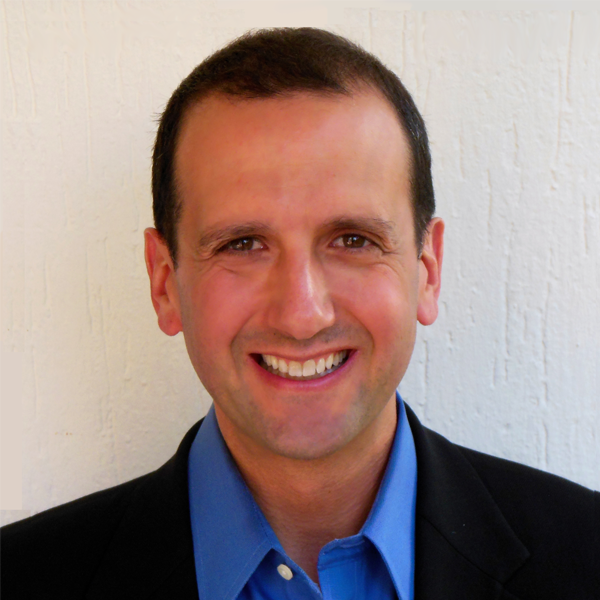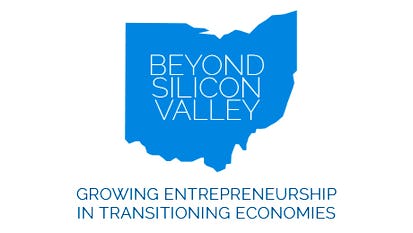- Level Foundation
- المدة 17 ساعات hours
- الطبع بواسطة Case Western Reserve University
-
Offered by

عن
The path for entrepreneurs to grow their companies outside of well-developed entrepreneurial ecosystems like Silicon Valley is challenging. Most markets around the world do not look like Silicon Valley, and they never will. But there are other models to support new businesses. In transitioning markets (where entrepreneurs do not have much access to private sector financing), government officials, donors, and business leaders are experimenting with creative approaches to support the growth of entrepreneurs. Northeast Ohio, whose largest city is Cleveland, is one such community. During our time together in this course, we will be exploring some of these innovative approaches. A massive intervention of government and donor resources in Northeast Ohio has been in place for over ten years. In that time, Northeast Ohio has experienced success (including job creation and follow-on funding) with alternative methods of financing startups, but it has not been easy. Yes, some progress has been made, but whether or not they've hit on ultimate success has yet to be determined. A dynamic entrepreneurial ecosystem takes many years, even decades, to develop. Government officials and donors typically are looking for shorter term success with their support programs which makes long-term support for entrepreneurship challenging. During this course, we will hear from entrepreneurs who have launched products and services ranging from medical devices to LED lights to whiskey. You will learn how these entrepreneurs engaged with resources made available to them through a variety of programs and intermediary organizations. We have chosen to talk with many business people that are still in the process of developing their companies and whose ultimate success or failure is still to be determined. In addition to learning about Cleveland's attempts to support entrepreneurship, you will also be hearing in the lectures from leaders in selected markets around the world including Greece, Vietnam, Tunisia, Argentina, Rwanda and China about how they are working to support the growth of start-up companies. One of our goals is to learn from you how different communities around the world are approaching implementing strategies and methods to support businesses. Taking what we've learned from our examples in class, I will ask you to reflect on how to best grow entrepreneurship where you live. I am excited to use this global platform to create a dialogue where information flows in multiple directions. Most MOOCs rebroadcast professors’ lectures, but this course will be different. Don’t expect to see me standing in front of the camera, talking and lecturing every module. Instead, the lectures will be relatively short in length and will have more of the feel of an engaging documentary than a static classroom setting.الوحدات
Welcome to Beyond Silicon Valley
1
Videos
- Course Welcome and Overview
Course Materials
3
Readings
- Course Readings
- Course Teaching and Support Team
- Recognizing Our Volunteer Translators
The Role of Government
1
Videos
- Role of Government
Module Materials
5
Discussions
- Discuss: What kids of initiatives do you think government should support?
- Discuss: How do governments support entrepreneurship in your region?
- Discuss: How has your regional entrepreneurial ecosystem grown?
- Discuss: What are the risks involved in government-funded entrepreneurship?
- Discuss: How is success defined for government-funded entrepreneurial programs?
1
Readings
- Readings: Role of Government
Review
1
Assignment
- The Role of Government
1
Peer Review
- Personal Learning Assignment 1
The Role of Philanthropy/Donors
1
Videos
- Role of Philanthropy/Donors
Module Materials
4
Discussions
- Discuss: Why do donors get involved in supporting entrepreneurs?
- Discuss: What types of donors are actively funding entrepreneursip programs in your community?
- Discuss: What are challenges of maintaining donor interest in entrepreneurship over the long haul?
- Discuss: What are some strategies to get additional donors involved in supporting entrepreneurship locally?
1
Readings
- Readings: The Role of Philanthropy/Donors
Review
1
Assignment
- The Role of Philanthropy/Donors
1
Peer Review
- Personal Learning Assignment 2
The Role of Intermediary Organizations/NGOs
1
Videos
- Role of Intermediary Organizations/NGOs
Module Materials
5
Discussions
- Discuss: What are the challenges of intermediary organizations in your community?
- Discuss: Why are intermediary organizations created and how do they support entrepreneurship?
- Discuss: How do intermediary organizations know when they have accomplished their mission?
- Discuss: How do intermediary organizations measure success?
- Discuss: How have you or other entrepreneurs in your community benefited from intermediary organizations?
1
Readings
- Readings: The Role of Intermediary Organizations/NGOs
Review
1
Assignment
- The Role of Intermediary Organizations/NGOs
1
Peer Review
- Personal Learning Assignment 3
Leveraging Anchor Institutions
1
Videos
- Leveraging Anchor Institutions
Module Materials
5
Discussions
- Discuss: What are the most prevalent types of anchor institutions in your region?
- Discuss: Why are universities important hubs of innovation/entrepreneurship?
- Discuss: What is the rationale behind devoting resources to help translate research into commercial products?
- Discuss: How have you or other entrepreneurs in yor community benefited from anchor institutions?
- Discuss: What are some available pathways for innovative ideas to find the right markets in your communities?
1
Readings
- Readings: Leveraging Anchor Institutions
Review
1
Assignment
- Leveraging Anchor Institutions
2
Peer Review
- Personal Learning Assignment 4
- Midterm Action Learning Assignment: Local Entrepreneurial Heroes
Access to Capital and Mentoring
4
Discussions
- Discuss: How are seed accelerators funded and structured?
- Discuss: How do angel invstors choose the entrepreneurs they support?
- Discuss: Who are the angel investors in your community?
- Discuss: Why is it difficult to attract venture capital funds in transitioning communities?
3
Videos
- Seed Accelerators
- Angel Investing
- Venture Capital
Module Materials
2
Discussions
- Discuss: What are the biggest challenges facing seed accelerators, angel investors...
- Discuss: What kinds of expectations do investors in your region have?
1
Readings
- Readings: Access to Capital and Mentoring
Review
1
Assignment
- Access to Capital and Mentoring
1
Peer Review
- Personal Learning Assignment 5
Course Wrap-Up and Looking Ahead
1
Videos
- Course Wrap-Up
Review
1
Assignment
- Final Exam
1
Peer Review
- Final Project
Auto Summary
Explore the dynamic world of entrepreneurship in transitioning economies with "Beyond Silicon Valley: Growing Entrepreneurship in Transitioning Economies," an engaging course offered by Coursera. This business and management course, instructed by seasoned experts, delves into the challenges and innovative approaches to fostering entrepreneurial growth outside the traditional Silicon Valley model. Over the span of approximately 17 hours, you'll gain insights into how various communities, particularly Northeast Ohio, have leveraged government and donor resources to support startups. The course features real-world stories from entrepreneurs across diverse industries, including medical devices, LED lighting, and whiskey production, highlighting their journeys and the unique support systems they utilized. Moreover, the course extends its lens globally, offering perspectives from leaders in Greece, Vietnam, Tunisia, Argentina, Rwanda, and China on nurturing startups in their regions. This global perspective encourages learners to reflect on and share strategies applicable to their own communities, fostering an interactive and collaborative learning environment. Unlike traditional MOOCs, this course adopts a documentary-style format with concise and engaging lectures, ensuring a captivating learning experience. Whether you're at the foundational stage of your entrepreneurial journey or looking to understand different support models, this course caters to a diverse audience. With flexible subscription options—Starter and Professional—you can choose the plan that best suits your learning needs. Join us in this unique educational venture and contribute to the global dialogue on growing entrepreneurship in transitioning economies.

Professor Michael Goldberg

